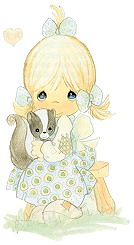Shared from:
Are Our Emotional Reactions
In-Born or Learned?
November 16, 2012 by Dr. Jon Warner
Using Different Emotional
Intelligence Styles
October 5, 2012 by Dr. Jon Warner

A large body of
opinion suggests that we must learn, experience, and express our emotions over
time. Many basic emotional reactions may
be inborn physiological responses like pain, fear, crying, hunger, sensual and
general pleasure, frustration etc. As we
grow out of our early childhood, certain emotions become associated with
particular situations and events. Many
of our emotional responses are learned and can be changed by new learning.
Some people believe
that emotional intelligence is a skill to be learned or developed through particular
competencies such as listening more attentively or showing greater empathy. There are two parts of emotional intelligent
that appears to be critical:
- able to have a high level of self-awareness
- able to read the needs of other people
So “responding
appropriately” is the key requirement. There
are two important dimensions in constructing a model for emotional intelligence
style:
- Individual drive or motivation
- it is important to understand what people tend to drive towards or are interested in pursuing
- the two ends of the scale or continuum of Drive/Motivation
·
A drive
towards outcomes
·
reflects
an interest in goals and targets as well as in task achievement or tangible
action steps
·
A drive
towards beliefs
·
reflects
an interest in values and attitudes, and people and relationships
- Thinking structure adopted by an individual
- two major categories of individual thinking styles
·
A drive
towards experimentation
·
reflects
an interest in the open exploration of ideas
·
often
good for dealing with ambiguity and uncertainty or for accepting quite varied
data and opinions
·
A drive
towards control
·
reflects
an interest in an ordered and often systematic sequential thought process
·
often
good for applying sound and careful logic to data or opinions
The Four Emotional
Intelligence Styles
Reflective
- high structure and high outcomes
- results driven style
- the individual is likely to be task focused
- look to achieve their goals in a quiet, considered, ordered and incremental or sequential manner
- approach new situations by looking to collect information that they can logically analyze and weigh up carefully in their mind before they decide or act
- predominantly interested in how the external world is structured and ordered
- concerned to continually gather data to be mentally sifted and reviewed
- consequently sees emotions, feelings, beliefs and values only as observable behaviors or actions that should be noted and appropriately categorized alongside all other perceptions of external events or situations
- personal empathy levels with emotions experienced are low or even non-existent

Conceptual
- highly experimental and high outcomes
- results driven style
- the individual is likely to be task focused
- look to achieve their goals in a challenging, stretching, decisive and non-linear manner
- approach new situations by putting forward a variety of observations, ideas and suggestions designed to push people’s thinking to new or different horizons
- predominantly interested in how the external world can be understood in a range of different ways and changed or altered through action
- sees emotions, feelings, beliefs and values only as observable behaviors to be incorporated into their big picture view of people and life in general

Organized
- high structure and highly beliefs driven style
- strongly value a world in which people can interact simply, fairly and with certainty
- approach new situations by communicating the importance of issues such as clear processes and systems, personal competence, good planning and discipline as a basis for an organized world in which people can operate in a calm, familiar and well ordered climate
- predominantly interested in how the world of inner beliefs and the values of every individual can be accommodated in an ordered way with a well understood and practical set of parameters in which people can operate with confidence and certainty

Empathetic
- highly experimental and highly beliefs driven style
- have a strong drive to understand and communicate with people at a social level and spend much of their time looking to extend and deepen their relationships with others
- adopt a warm and gregarious approach to new situations and events in general and strive hard to understand other people’s inner feelings and views
- likes to connect with others at an emotional level and most enjoys relationships where feelings are open and known
- predominantly interested in how the world of inner feelings, beliefs and values can be better understood
- likely to adopt an open, giving and altruistic approach on the basis that it may well engender the same response in others
We need flexible ways
to respond to people in a range of different situations.


No comments:
Post a Comment